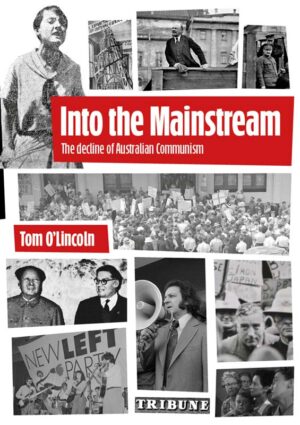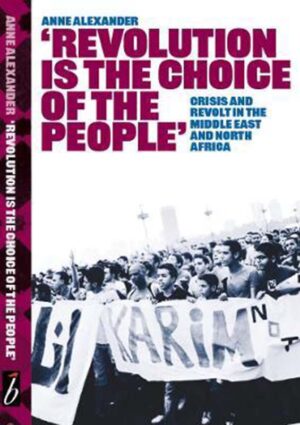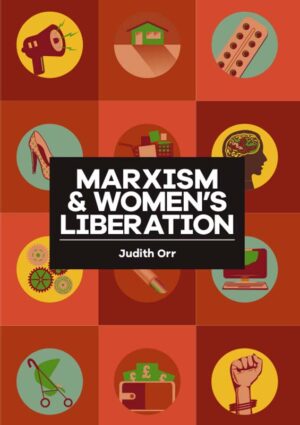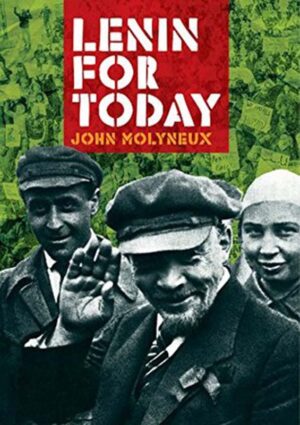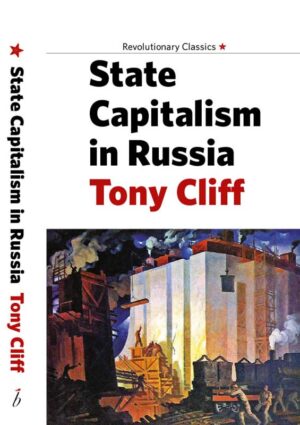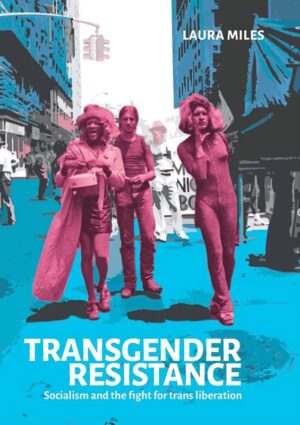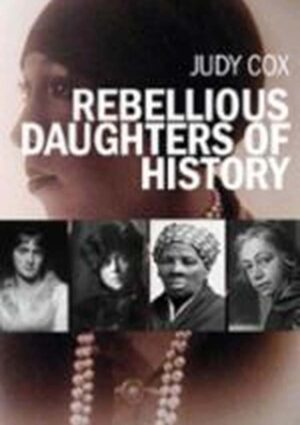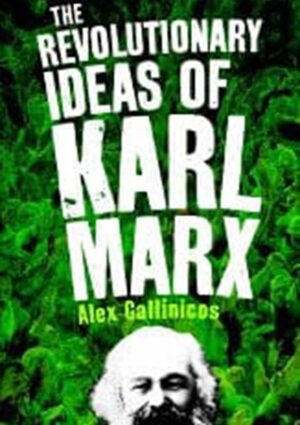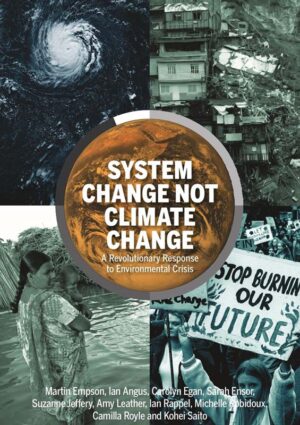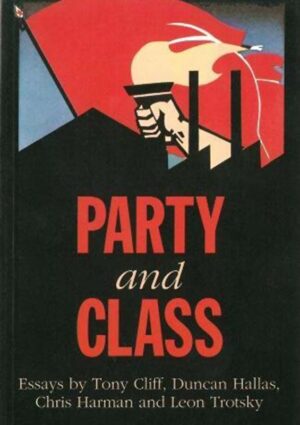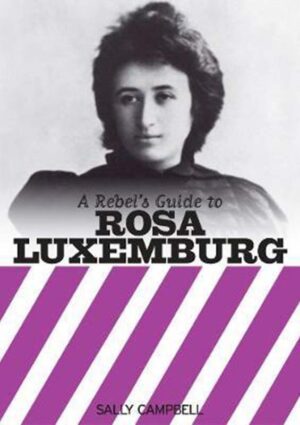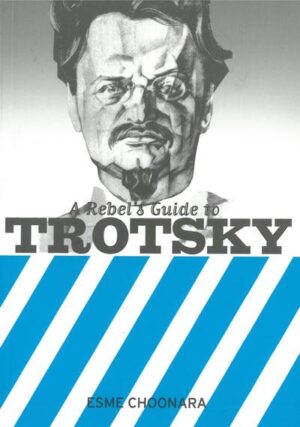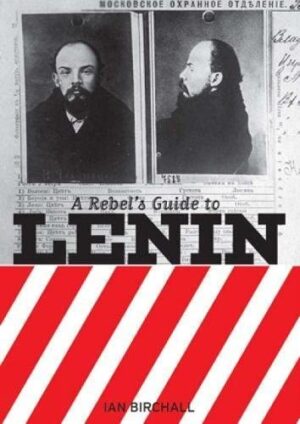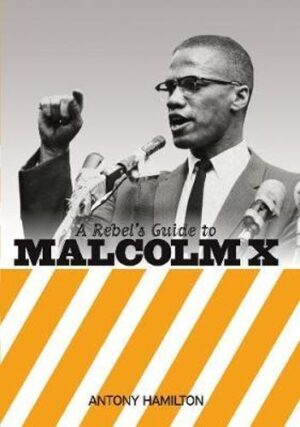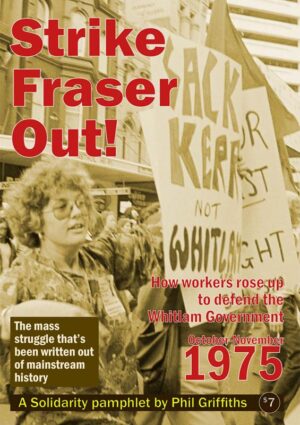-
Solidarity magazine subscription
Price range: $25.00 through $150.00 incl GSTSubscribe to Solidarity’s monthly magazine
Each month Solidarity magazine carries reports from activists at the frontline of fighting for change, features on the history and politics of resistance, as well as a distinctively socialist analysis of Australian and global politics. Subscribe and get Solidarity magazine posted to you each month.
Introductory subscription: 5 issues for $25
One year subscription: 12 issues for $55
Two year subscription: 24 issues for $100
Two year supporters subscription: 24 issues for $150
Overseas subscription (outside Australia): 12 issues for $80All prices include postage
-
Into the Mainstream
$35.00 incl GSTInto the Mainstream traces the Communist Party of Australia’s decline from an influential movement, plagued by its bureaucratic Stalinist politics, to a shrinking organisation trying desperately to re-invent itself as a radical force, but finally drifting into the political mainstream. The story is set against such historic events as the cold war, the Sino-Soviet split, and the social radicalisation of the late sixties. It offers lessons for revolutionary activists today.
-
The Radical Jewish Tradition
$35.00 incl GSTThe claim of Israel and its apologists to represent Jews everywhere, the growth of the antisemitic far right, and the approach of the left to the Jewish question, are central issues today. A knowledge of the role of Jews in the past aids understanding of these debates. This book recovers some of that long-neglected history.
-
Revolution Is The Choice Of The People
$32.00 incl GSTCrisis and Revolt in the Middle East & North Africa
By Anne Alexander
-
Zombie Capitalism
$30.00 incl GSTGlobal Crisis and the Relevance of Marx
By Chris Harman
We’ve been told for years that the capitalist free market is a self-correcting perpetual growth machine in which sellers always find buyers, precluding any major crisis in the system. Then the credit crunch of August 2007 turned into the great crash of SeptemberOctober 2008, leading one apologist for the system, Willem Buiter, to write of “the end of capitalism as we knew it.”
As the crisis unfolded, the world witnessed the way in which the runaway speculation of the “shadow” banking system wreaked havoc on world markets, leaving real human devastation in its wake. Faced with the financial crisis, some economic commentators began to talk of “zombie banks”financial institutions that were in an “undead state” and incapable of fulfilling any positive function but a threat to everything else. What they do not realize is that twenty-first century capitalism as a whole is a zombie system, seemingly dead when it comes to achieving human goals.
First published 2009.
-
The Fire Last Time: 1968 and After
$28.00 incl GSTBy Chris Harman
The year 1968 was a watershed. Millions of workers in France struck in protest at police violence, the black ghettos in the United States rose in protest at the assassination of Martin Luther King, and it was the year of the Prague Spring when students and workers rose against Stalinism, only to be crushed by Russian Tanks. Substantially revised and updated to coincide with the 30th anniversary of the revolt, this work analyses the period and draws lessons from the events of 1968 that will still have relevance today.
-
Marxism and Women’s Liberation
$28.00 incl GSTMarxism and Women’s Liberation
By Judith Orr
Why are women more often to be found on the sticky floor of low pay than above the glass ceiling where the rich reside? Why is there an assault on the gains of the women’s movement?
As austerity bites and new debates about oppression rage, Judith Orr steers a path through the history and future of the fight for women’s liberation.
‘A tour de force. Wide ranging, tackling complex issues with a sure grasp, and deeply informed both historically and in the present, this readable text supplies both essential information and strong arguements. For Marxists seeking to understand feminism, for feminists seeking to understand Marxism, and for anyone looking for a way to transcend the brutality of contemporary capitalism, this is essential reading.’ Hester Eisenstein, professor of sociology, City University of New York
‘A sharp introduction to one of the key political questions of our time…a powerful and urgent call to action.’ Sinead Kennedy, abortion rights campaigner with Action for Choice, Ireland
‘A very important book examining the retreats and contradictions of women’s liberation in the 21st century.’ Jane Hardy, professor of political economy, University of Hertfordshire
-
Lenin for today
$28.00 incl GSTLenin For Today
By John MolyneuxA hundred years after the Russian Rolution Lenin remains a world historical figure of immense stature – but also a hightly contested one. In Lenin for Today John Molyneux rejects the conventional view that Lenin had a dictatorial attitude to working people and thus paved the way for Stalinism.
Instead, as global capitalism staggers from crisis to crisis and careers towards climate catastrophe, he argues that Lenin’s main ideas – on international workers’ revolution, opposing imperialism and war, overthrowing the state, the need for party organisation and the fight against oppression – remain vital and releveant today.
-
State Capitalism in Russia
$25.00 incl GSTBy Tony Cliff
With a new introduction by Alex Callinicos
Now back in print, Tony Cliff’s pathbreaking analysis of Stalinism in Russia as presiding over a state capitalist economy. Still essential reading for anyone who wants to understand the fate of the Russian Revolution and why the struggle for genuine socialism since the 1930s has had to raise the banner “Neither Washington nor Moscow but International Socialism”.
-
Transgender resistance
$24.00 incl GSTTransgender Resistance: Socialism And The Fight For Trans Liberation
By Laura MilesTrans rights and trans lives have come under increasingly vicious ideological attack in recent times, from the ‘bathroom wars’ and Donald trump’s anti-trans edicts in the United States, to attacks on the proposed changes to the Gender Recognition Act in Britain.
Transgender Resistance brings together key strands of opposition to these attacks – on the streets, in communities, in workplaces and in unions. It addresses the roots of transphobia and the history of gender transgression.
It highlights trans peoples’ fight for the freedom to live authentic lives and explains why that fight deserves unconditional solidarity in all sections of the left.
-
Rebellious daughters of history
$22.00 incl GSTBy Judy Cox
The Rebellious Daughters are women drawn from across continents and decades connected by their determination to challenge prejudice, inequality and injustice. From Black Panthers to Victorian trade unionists, from slave insurgents to radical poets, the Rebellious Daughters all defied the system and many won. The project began as a response to Lock Down. In daily Facebook posts I drew attention to how women of the past had fought back. The only criterion was that the women looked to militant collective action rather than Parliament or Congress. I also chose women whose lives were unconventional, those who challenged expectations by speaking out and finding their own ways to love as they were fighting for a radical transformation of their world.
The book introduces women in accessible mini-biographies and excavates their lives from the obscurity to which they have been condemned by a historiography which is misogynistic, racist and centred on men in positions of power. Rebellious Daughters creates a vivid and inspiring series of portraits of women who refused to stay in their place in the expectation that their example will strengthen women fighting for a better world.
-
The Revolutionary Ideas of Karl Marx
$22.00 incl GSTBy Alex Callinicos
Karl Marx is one of the few people who have fundamentally changed the way we see the world. His ideas have always been controversial, misunderstood, attacked and even dismissed.
The Revolutionary Ideas of Karl Marx rescues the revolutionary tradition of Marx and demonstrates conclusively the relevance of his ideas for everyone who wants to end poverty, oppression, climate change and war and see humanity progress.
New edition with a new Introduction and an updated guide to further reading.
-
System Change not Climate Change
$20.00 incl GSTA revolutionary response to environmental crisis
Edited by Martin Empson
Contents
* Introduction by Martin Empson
* Hopelessly Devoted to Fossil Fuels, Amy Leather
* Marxism and the Anthropocene, Camilla Royle
* The Discovery and Rediscovery of Metabolic Rift, Ian Angus
* Karl Marx’s Idea of Ecosocialism in the 21st Century, Kohei Saito
* Natural Capital: A Neoliberal Response to Species Extinction, Ian Rappel
* Food, Agriculture and Climate Change, Martin Empson
* Capitalism and the Biodiversity Crisis, Sarah Ensor
* Why Capitalism Loves Plastic, Amy Leather
* Canada’s Tar Sands, Indigenous Sovereignty and a Just Transition for Workers, Carolyn Egan & Michelle Robidoux
* Up Against the Clock: Climate, Social Movements and Marxism, Suzanne Jeffery
* Can We Build a Sustainable Society? Martin Empson -
Party and class
$12.00 incl GSTEssays by Chris Harman, Duncan Hallas, Tony Cliff and Leon Trotsky
Socialists aim to change the world and have always sought to organise themselves as effectively as possible in order to achieve this goal. But what sort of organisation do we need? These essays show why we need something very different from reformist organisations like the Labor Party if we are to get real change. They also dispel the myths about democratic centralism and demonstrate there is an unbridgeable gap between the kind of socialist party Lenin built and the Stalinist despotism that replaced it.
-
A Rebel’s Guide to Engels
$8.00 incl GSTBy Camilla Royle
Friedrich Engels was born in 1820 into a wealthy family in Barmen in what is now Germany. Engels lived through a time of extraordinary change throughout Europe, when old certainties were being questioned. Engels could speak nine languages and would later be described as the most widely educated man of his day. Engels was a scholar and an activist. He was an internationalist who was central to efforts to set up the Communist League. He took part in revolutionary struggles and in 1849 he was involved in an armed uprising. He was exiled and spent much of his life in Britain. Engels’s name is often mentioned in the same breath as Karl Marx. They co-wrote the Communist Manifesto and after Marx’s death, Engels edited volumes two and three of Marx’s Capital. Engels was a great thinker who made a massive contribution to Marxist thought in his own right. His works cover the conditions for working class people in his adopted home of Manchester, the history of peasant struggles, philosophy, women’s oppression, science, evolution and anthropology.
-
A Rebel’s Guide To Rosa Luxemburg
$8.00 incl GSTBy Sally Campbell
Rosa Luxemburg was one of the key leaders of the German revolutionary left until her murder by right wing militiamen in 1919 at the height of the attempted revolution. A young, Polish, Jewish woman, she had fearlessly taken on the theoretical giants of the Social Democratic Party of Germany in defence of revolutionary Marxism. This Rebel’s guide puts forward Luxemburg’s case. She was an orator, teacher and leader who stood in the classical Marxist tradition – this little book shines a light on an all too often overlooked revolutionary.
-
-
A Rebel’s Guide to Malcolm X
$8.00 incl GSTBy Antony Hamilton
Malcolm X was an inspirational speaker, an activist and a revolutionary. He was born into poverty in 1925 in the US and his early life was shaped by racist violence: his home was firebombed when he was four and when he was six his father was found dead, probably killed by the Ku Klux Klan. By the time of Malcolm X’s assassination in 1965, he had become one of the most iconic figures of Black power.
This addition to the popular Rebel’s Guide series follows Malcolm X’s political journey and the movements and ideas that influenced it. It looks at why his ideas continue to resonate and why the need to take forward his arguments and militancy — “by any means necessary” — remains as strong as ever.
-
Strike Fraser Out: How workers rose up to defend the Whitlam government
$7.00 incl GSTIn 1975 Gough Whitlam was sacked as Prime Minister by the Governor-General, as the Liberal Party and the ruling class conspired to get rid of a Labor government. Phil Griffiths tells the hidden history of the dramatic struggle that resulted, and how it was squandered by union leaders and the Labor Party.
-
Defend the CFMEU—How to fight Labor’s Administration regime
$5.00 incl GSTA Solidarity pamphlet by Tom Orsag. Published July 2025, 36 pages.
-
Abortion: Stop the bigots, fight for the right to choose
$5.00 incl GSTA Solidarity pamphlet by Judy McVey. Published June 2025, 52 pages.
-


